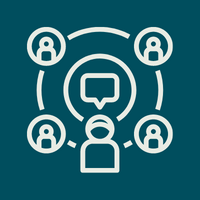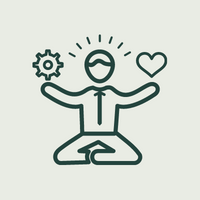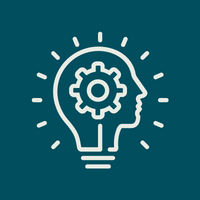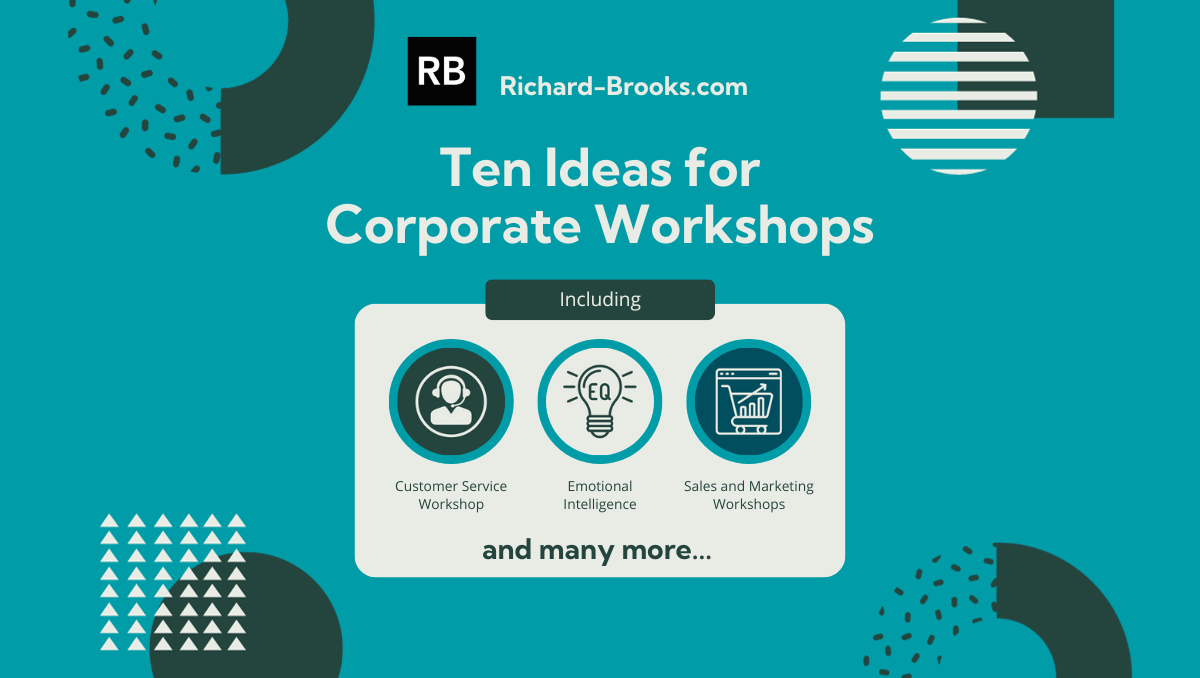Are you tasked with organising a corporate workshop but need ideas? This post might help.
Corporate workshops are training sessions led by professionals who can impart useful knowledge to staff members. Workshops like these are great for the company, but they also help employees grow professionally and personally. With the right corporate workshop ideas, you can host a fun and informative business event that fosters knowledge sharing, connections, and camaraderie amongst attendees. This type of gathering is also known as a “workshop” or “company workshop”, “away day” or “business workshop.”
These workshops are productive and enjoyable experiences for staff, aiding businesses in finding the perfect balance between individual development and effective teamwork. Workshops can be held at your own company or in an international setting, such as localization workshops. Through time and cooperative efforts employers and workers can develop a deeper level of trust and understanding.
In this article you’ll find ten suggestions for corporate workshop topics that might fit in with your organisation. Choose a few and add them to your company’s schedule to liven up the routine of brainstorming and project-based meetings.
Time Management and Productivity

A workshop focused on time management and productivity can help employees manage their workload more effectively and improve their work-life balance. Time management and productivity are crucial skills for any employee in any workplace. Employees who are able to manage their time effectively can be more productive, less stressed, and achieve better results. However, time management can be a difficult skill to master, and many employees struggle with balancing their workload, meeting deadlines, and maintaining a healthy work-life balance.
These workshops provide employees with the tools and techniques they need to manage their time effectively and increase their productivity. By teaching employees how to prioritise their tasks, set achievable goals, and manage their time wisely, these workshops can help them work more efficiently and achieve better results.
They also help employees develop better work-life balance. By providing strategies for managing their workload and setting boundaries around their work schedule, employees can reduce stress and improve their overall well-being. Benefits include: higher job satisfaction, better mental health, and improved productivity.
Communication Skills Workshop

A workshop focused on communication skills can help employees improve their communication with colleagues, clients, and customers. This can include training on active listening, conflict resolution, and effective feedback.
Effective communication is essential for success in any workplace. It is critical for building relationships with colleagues, clients, and customers, and for conveying information and ideas in a clear and concise manner. However, communication is a complex skill that requires practice and development, and many employees struggle with it.
This is where communication skills workshops come in. These workshops can provide employees with the training and development they need to improve their communication skills. By focusing on active listening, conflict resolution, and effective feedback, these workshops can help employees communicate more effectively with others, build stronger relationships, and achieve better results.
One of the key areas of focus in communication skills workshops is active listening. Active listening is a technique that involves paying close attention to what the other person is saying, asking clarifying questions, and providing feedback to ensure that you have understood their message. By developing active listening skills, employees can improve their communication with others, build trust, and develop stronger relationships.
Conflict resolution is another important area of focus in communication skills workshops. Conflict is inevitable in any workplace, but by developing effective conflict resolution skills, employees can learn how to manage conflict in a positive and constructive way. By providing training on conflict resolution strategies, communication skills workshops can help employees navigate difficult conversations, resolve conflicts, and maintain positive relationships with their colleagues.
Effective feedback is also a key component of communication skills workshops. By providing feedback that is specific, actionable, and constructive, employees can help their colleagues improve their performance and achieve better results. By developing effective feedback skills, employees can create a more collaborative and supportive workplace culture.
Games and activities can be a fun and effective way to improve communication skills in this format. Here are some that you could consider including:
- Two Truths and a Lie: This classic can help participants get to know each other and practise their active listening skills. Each participant shares three statements about themselves, two of which are true and one of which is false. The other participants then try to guess which statement is the lie.
- The Telephone Game: (you played this one at school but called it something different). Sit in a circle and whisper a message to the person next to you, they then whisper it to the next person, and so on. The last person then shares the message they heard with the group, and everyone compares the final message to the original message.
- Blind Drawing: Everyone sits back to back, and one person describes an object or scene while the other person tries to draw it without seeing it. Encourages clear and detailed communication and can help participants develop their listening and interpretation skills.
- Role-playing scenarios: Without making it too cheesy (think about how funny the TV show The Office was) role-playing is an effective way to help participants practise communication skills in a realistic context. Participants can practise skills like active listening, conflict resolution, customer management, and giving and receiving feedback to coworkers by playing out realistic scenarios that they might encounter in the office.
- One-Word Story: Coworkers sit in a circle and take turns saying one word to create a story. This activity encourages participants to listen carefully to the words that have already been said and to build on each other’s ideas. A variation of this game I play with my kids is called; “I went on holiday and in my case I packed” – you get the idea.
Diversity and Inclusion Workshop

A workshop focused on diversity and inclusion can help employees better understand and appreciate the differences in their colleagues and clients. This often includes training on unconscious bias, cultural competence, and allyship.
Unconscious biases are attitudes and beliefs that we hold without being aware of them. They often have a negative impact on our interactions with others around us. Awareness of these unconscious biases can help employees recognise and overcome their biases.
Cultural competence is the ability to understand and appreciate the values, beliefs, and practices of different cultures. By providing training on cultural competence, diversity and inclusion workshops can help employees better understand the backgrounds of their colleagues and clients. The aim is to develop the skills they need to work effectively across cultural boundaries.
Allyship is the practice of standing up for and supporting members of marginalised or underrepresented groups. By providing training on allyship employees become effective allies and advocates for their colleagues, creating a more supportive and inclusive workplace.
Stress Management Workshops

A workshop focused on stress management can help employees learn how to cope with stress and maintain a positive work-life balance. This can include training on mindfulness, meditation, and stress reduction techniques. Sadly, sometimes, stress is an unavoidable part of modern life. More often than not it can often have a negative impact on our mental and physical health, as well as our productivity at work. I’d always vote for avoiding undue stress but if it can’t be avoided, knowing how to recognise it and how to deal with it can help.
A workshop focused on stress management can provide training on various stress-reduction techniques, such as mindfulness, meditation, and breathing exercises, as well as practical tips for managing workloads and prioritising tasks.
Mindfulness involves paying attention to the present moment and accepting it without judgement. Meditation involves sitting quietly and focusing on the breath or a particular object, allowing the mind to relax and let go of distractions. Stress reduction techniques, such as breathing exercises and visualisation, are commonly covered in stress management workshops and a valuable investment for any organisation. These techniques can help employees reduce feelings of stress and anxiety, promoting a more positive and balanced work-life balance.
Customer Service Workshop

Focused on customer service, this workshop can help employees improve their customer service skills and provide better support to clients and customers. This can include active listening, empathy, and problem solving.
In today’s competitive business landscape, providing excellent customer service is more important than ever. A satisfied customer not only brings repeat business, but can also be a valuable brand ambassador for your company telling many people about how amazing your company is. Customer service skills don’t always come naturally to everyone, but they can be coached in a workshop.
A customer service workshop is an opportunity to provide targeted training to employees who interact with customers regularly. The focus is on building skills and techniques that will help employees provide the best possible service. A key area of focus is active listening. This involves paying close attention to what the customer is saying, asking clarifying questions, and reflecting back what you’ve heard to make sure you understand the issue at hand. Empathy is another critical skill. This involves putting yourself in the customer’s shoes and understanding their perspective. Empathy can help employees build rapport with customers, defuse tense situations, and find out bad news as early on in the customer journey as possible.
By brainstorming a problem in a risk free environment such as a workshop your customer team can explore different options and ideas.
Cybersecurity Workshop

Cybersecurity is a critical concern for businesses of all sizes. Cyber attacks are becoming more sophisticated, common and the potential consequences of a breach can be devastating. It is now essential for (almost) all employees to understand the importance of it and how to protect company data and digital assets.
Cybersecurity training can help employees understand the risks associated with cyber attacks and learn best practices for staying safe online. Here are some key considerations when it comes to running cybersecurity workshops:
- Identify areas of vulnerability: Important to identify areas of vulnerability within the organisation. This can include assessing the types of data that the company collects and stores, identifying potential threats to that data, and understanding the types of attacks that are most common in the industry.
- Develop a training plan: This should include a mix of classroom training, online resources, and hands-on exercises to help employees learn and practise new skills.
- Focus on the basics: Includes topics like password management, phishing scams, and safe online practices.
- Provide ongoing training: Threats are constantly evolving. It’s important to provide ongoing training to staff to ensure they are up-to-date on the latest trends.
- Encourage a culture of security: Culture eats everything else for lunch. Make it your passion to promote a culture of security within the organisation. Making cybersecurity a priority at all levels.
Creativity and Innovation

For lots of challenges in the corporate world we need to think creatively. A creativity and innovation workshop is an opportunity to provide targeted training to employees who need to generate new ideas and approaches to problem-solving. The focus is on building skills and techniques that will help team members become more creative and innovative.
One key area of focus is brainstorming. This involves encouraging the free flow of ideas, without judgement or criticism. Employees can learn techniques for generating a large number of ideas quickly, then selecting the most promising ones to pursue further.
Design thinking is another critical skill that can be covered in a creativity and innovation workshop. This involves understanding the needs of users or customers, then using that information to develop new products, services, or processes that meet those needs. Employees can learn techniques for empathising with users, defining the problem, generating and testing ideas, and implementing solutions.
Ideation is also an essential component of effective creativity and innovation. This involves generating and developing new ideas, then testing and refining them. You will learn techniques for generating new ideas, such as mind mapping and reverse brainstorming, as well as techniques for evaluating and prioritising those ideas.
Emotional Intelligence

Emotional intelligence (or EQ) is an increasingly important skill that can help everyone in the team succeed and thrive. It refers to the ability to identify, understand, and manage emotions, as well as the emotions of others. A workshop focused on emotional intelligence can provide targeted training to help employees develop critical soft skills.
The workshop will often include a psychometric test. This helps to develop self awareness and explains why a particular team performs the way it does.
Presentation Skills

It might be presenting to a large audience or simply leading a meeting. The ability to communicate ideas effectively can make a world of difference. A presentation skills workshop can improve public speaking and presentation skills, providing targeted training to more confident and effective communicators.
At the heart of this skill is effective storytelling. Understand the importance of structure and narrative. Develop techniques to engage the audience and hold their attention. Learn how to use compelling stories to illustrate key points and make presentations more memorable.
Effective visual aids, such as slides, videos, and graphics can be powered by technology but there is still an understanding of design principles required. A presentation skills workshop will teach design principles such as colour, typography, and composition to create visually appealing and effective presentations.
Delivery techniques are also an essential component of effective presentation skills. This includes developing confidence and clarity in public speaking, techniques for managing nerves and body language. Attendees can learn how to project their voice, use effective pacing and intonation, and manage eye contact to enhance their delivery and engage the audience.
Sales and Marketing Workshops

Sales and marketing workshops are an excellent way to help employees learn new skills and stay up to date with the latest sales and marketing trends. Benefits include, improved customer engagement, increased revenue, and a sales team all pulling in the same direction.
They can also be used to encourage communication of tacit knowledge across the company. Information doesn’t always flow freely from product to sales teams and workshops can be a catalyst for this to happen.
A sales and marketing workshop can be used to provide insight on the customer journey. With specific attention played to the process of attracting leads, nurturing potential customers, and closing the sale. This can include training on how to create effective landing pages, use of email marketing to build relationships, and provide relevant and timely follow-up. Participants will come away with practical knowledge in the key areas of sales strategy, in order to gain a competitive advantage.
Your Corporate Workshop
There are a wide variety of corporate workshops available that can help improve employee engagement, boost productivity, and enhance the overall performance of your organisation. From team building exercises to skill-building sessions, there’s something for every type of business, team and challenge.
Whether you’re looking to improve communication, strengthen leadership skills, or simply foster a more collaborative workplace culture, investing in corporate workshops can pay off in many ways. By giving your team the tools and resources they need to succeed, you’re not only enhancing their performance but also investing in the long-term success of your business.
If you’re interested in exploring the different types of corporate workshops and finding the best options for your organisation, I’d love to help. To learn more about my services and to schedule a consultation, please book a call today. Look forward to helping your team achieve their full potential!











Leave a Reply